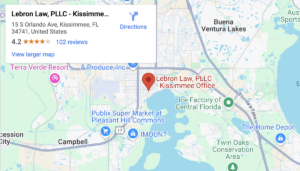Michele A. Lebron | April 22, 2025 | Family Law Blog

Understanding the distinction between a lawyer and an attorney proves important when seeking legal representation. Although often used interchangeably, these terms carry different meanings.
In the United States, a lawyer is someone who graduates from law school. To become an attorney, one must pass the bar examination and fulfill additional licensing requirements. This process ensures attorneys possess the necessary qualifications to represent clients in legal matters.
Licensing Requirements in the United States
In the U.S., each state maintains its own specific criteria for admission. Most attorneys start their journey with a four-year college degree. After that, they apply to law school and earn a J.D. degree. Law school usually takes three years of full-time study. Some programs offer part-time options, which stretch the time frame.
After graduation, bar applicants sit for an exam that tests knowledge of general legal principles and state-specific law. Once they pass, they apply for a license and receive approval to practice law in court, draft binding documents, and speak on behalf of clients.
A few states allow an alternative path known as “reading the law.” In this arrangement, a person studies under a licensed attorney instead of attending law school. This path remains uncommon, but a handful of attorneys still follow it.
What Can Attorneys Do?
Attorneys hold the legal right to appear in court, file lawsuits, and speak on behalf of clients. They also draft legal contracts, argue motions, and handle depositions. Their license gives them the ability to act as a representative during formal proceedings.
Lawyers who never passed the bar exam do not have these rights. They might understand the law but cannot act as your representative. In some cases, they might work in legal publishing, consulting, or education. They might assist attorneys with research or case preparation but cannot take legal action for you.
Only attorneys may give legal advice or prepare official court documents on your behalf. If your case involves court appearances, negotiations, settlements, or enforceable contracts, you need someone who holds a current license.
Common Misconceptions About Legal Titles
Many people use the terms lawyer and attorney as if they mean the same thing. That confusion leads some to seek help from someone without proper qualifications. While nearly all attorneys hold a law degree, not all law school graduates become attorneys.
This distinction matters when your legal matter moves beyond research or discussion. If someone calls themselves a lawyer, ask whether they passed the bar exam and hold a current license to practice law. An attorney has met that standard and can stand by you in legal proceedings.
How the Distinction Matters in Divorce Cases
In divorce cases, you need someone who has the qualifications to handle court matters and legal proceedings. Attorneys possess that authority. They understand courtroom rules, file motions correctly, and speak with opposing counsel. Without a valid license, someone cannot legally take those actions on your behalf.
Your case may depend on quick action, legal filings, and detailed arguments. Only an attorney holds the power to complete those steps for you. The title matters when seeking legal representation. Do not risk your case by relying on someone without the full authority of the law behind them.
Seek Legal Help from a Licensed Attorney
If you need to file for divorce or help navigating a family law matter, speak with a licensed family law attorney in Kissimmee who has the authority to protect your interests. An experienced family law attorney provides legal representation for people facing divorce, mediation, time-sharing issues, and more. Schedule a consultation to discuss your family law case and how a qualified attorney can help.
Contact the Kissimmee Divorce Lawyers at Lebron Law, PLLC for Help Today With Your Family Law Case
For more information, contact our experienced Kissimmee family law & divorce attorneys at Lebron Law, PLLC by calling (321) 800-5195 to schedule a free consultation.
We serve all through Osceola County and its surrounding areas in Florida. Visit our office at:
Lebron Law, PLLC
15 S Orlando Ave, Kissimmee, FL 34741
(321) 800-5195

